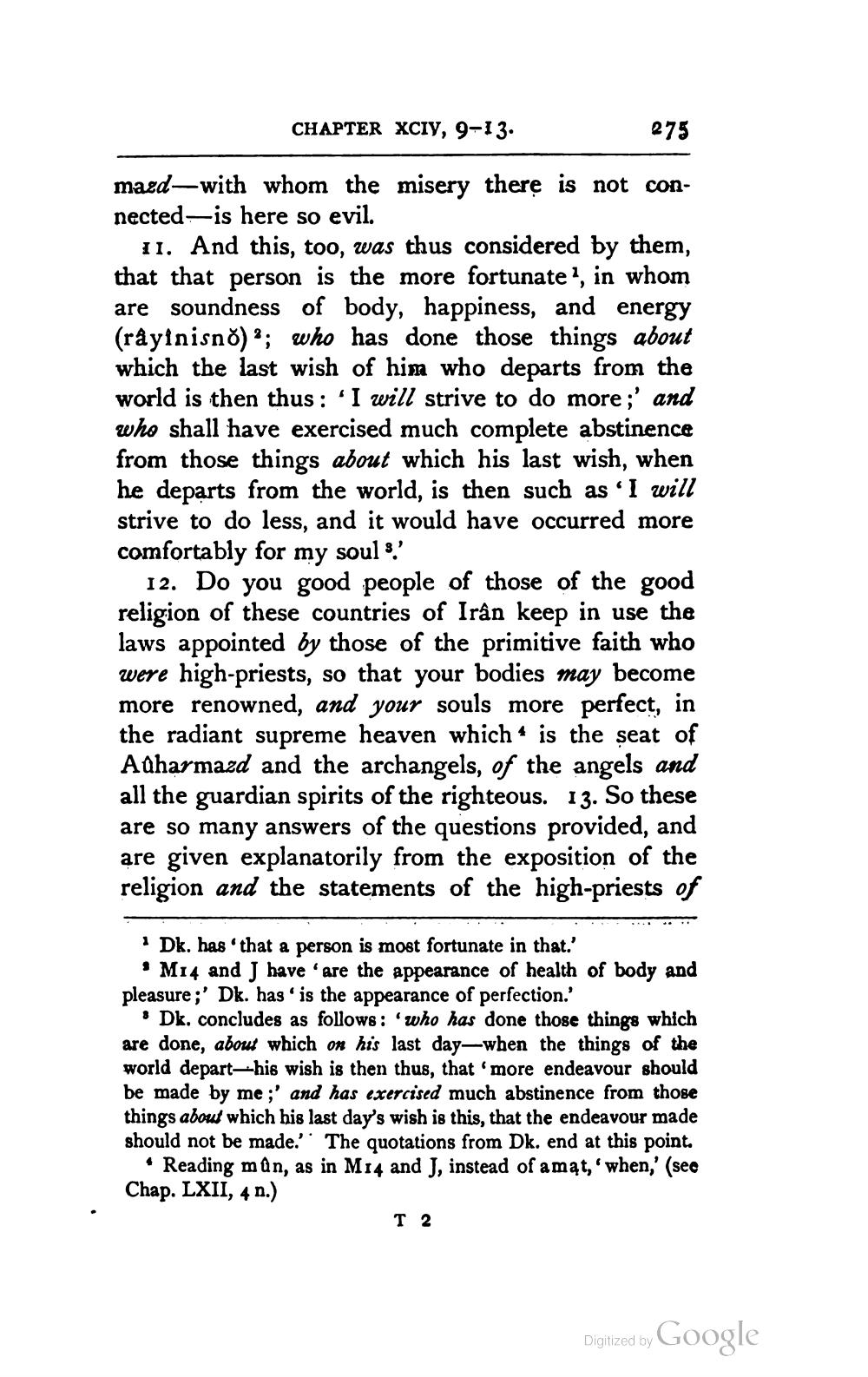________________
CHAPTER XCIV, 9-13.
275
mazd—with whom the misery there is not connected—is here so evil.
11. And this, too, was thus considered by them, that that person is the more fortunate ?, in whom are soundness of body, happiness, and energy (rayinisno) ; who has done those things about which the last wish of him who departs from the world is then thus: 'I will strive to do more;' and who shall have exercised much complete abstinence from those things about which his last wish, when he departs from the world, is then such as I will strive to do less, and it would have occurred more comfortably for my soul S.'
12. Do you good people of those of the good religion of these countries of Iran keep in use the laws appointed by those of the primitive faith who were high-priests, so that your bodies may become more renowned, and your souls more perfect, in the radiant supreme heaven which is the seat of Adharmazd and the archangels, of the angels and all the guardian spirits of the righteous. 13. So these are so many answers of the questions provided, and are given explanatorily from the exposition of the religion and the statements of the high-priests of
Dk. has that a person is most fortunate in that.' * M14 and J have are the appearance of health of body and pleasure;' Dk. has' is the appearance of perfection.'
. Dk. concludes as follows: who has done those things which are done, about which on his last day-when the things of the world depart—his wish is then thus, that more endeavour should be made by me;' and has exercised much abstinence from those things about which his last day's wish is this, that the endeavour made should not be made.". The quotations from Dk. end at this point.
. Reading man, as in M14 and J, instead of amąt, 'when,' (sec Chap. LXII, 4 n.)
T 2
Digitized by Google




